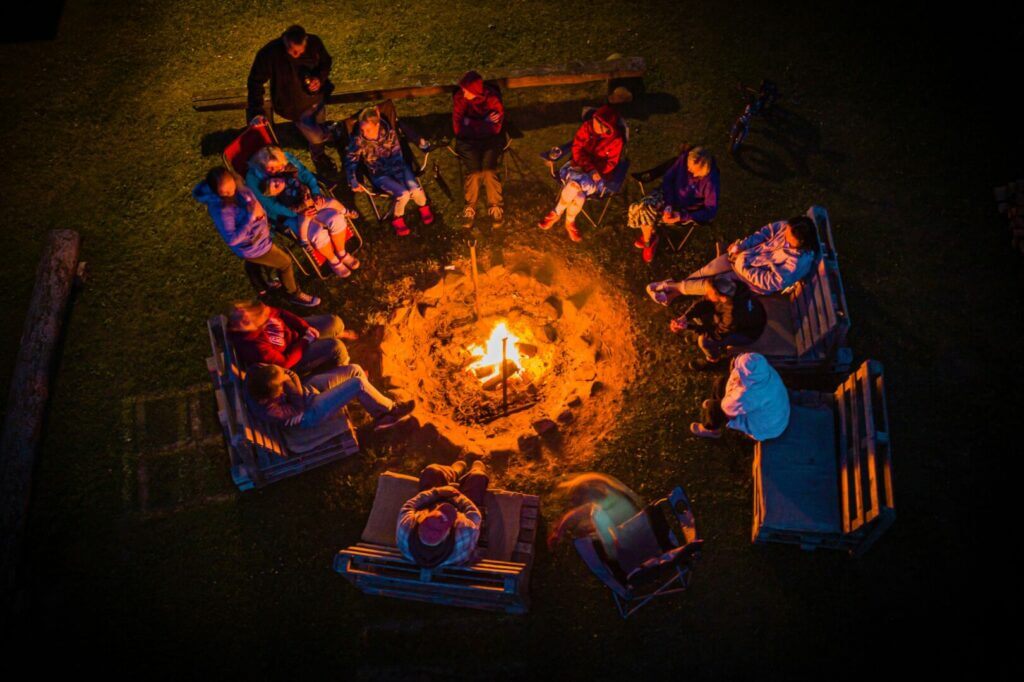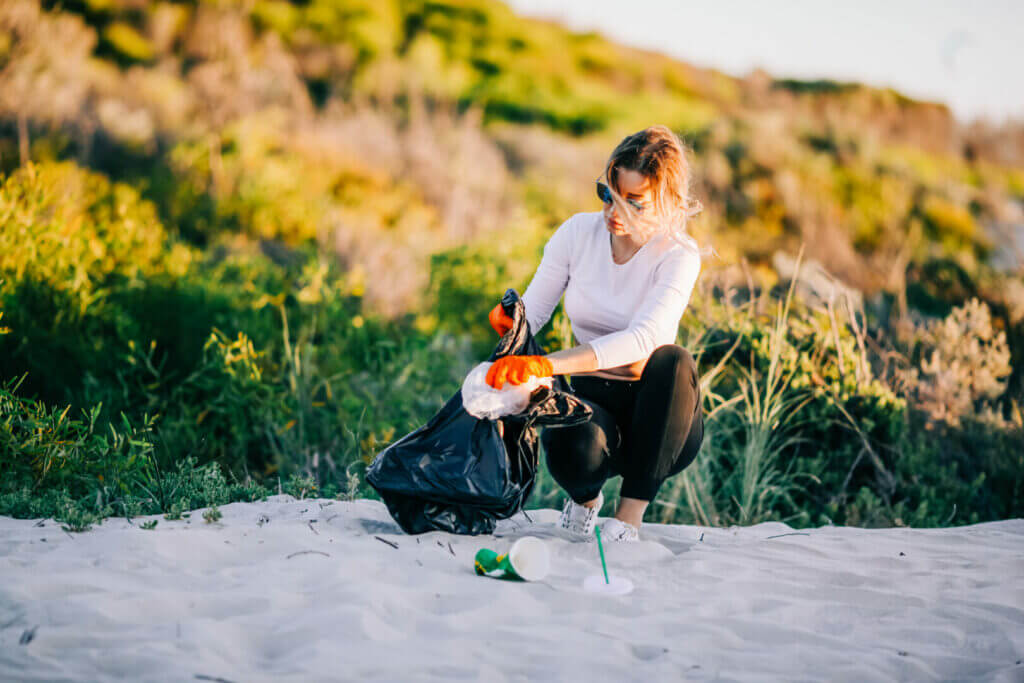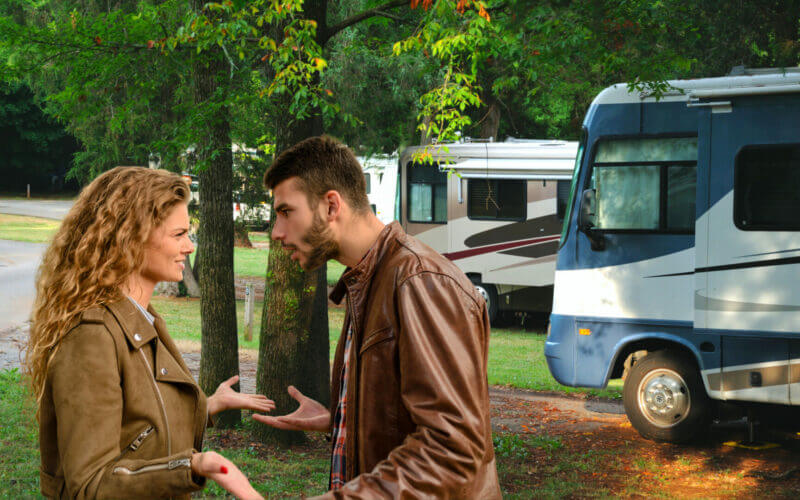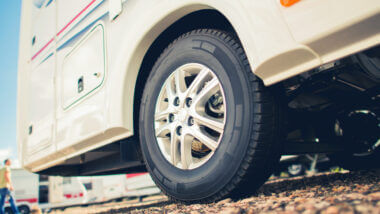Table of Contents Show
When it comes to campground etiquette, we all need a few lessons and reminders. Showing up to a potluck campfire dinner without the proper silverware might get you tossed out of the campground!
Ok, we’re not talking about that type of etiquette. We’ll leave that up to the fancy restaurants. There are, however, a few etiquette rules when it comes to campground behavior. And once you know those, you can use them to improve your interactions wherever you are!
What Is Campground Etiquette?
Campground etiquette is the behavior expectations when staying at or visiting a campground. This campground can be an RV park, a national or state park, or even when free Bureau of Land Management land.
It’s not the price you pay that determines your behavior but the kindness you show no matter where you go. And when we spend time close to strangers in a campground, showing more respect to our fellow neighbors means we can all get along and keep our favorite camping areas open.
Following posted or stated rules is the best way to demonstrate proper campground etiquette. Combine those with common sense, and you’ll become one of the cool kids on the block.
The Rudest Things You Can Do in a Campground
Some actions of our fellow campers can be quite rude. While most may not realize their behavior is so poorly received, a few are obnoxious and know precisely how they’re behaving.
We hope you don’t endeavor to be like them and want to be the cool campers instead. These are nine things you shouldn’t do in a campground if you’re going to be the better campers!
Not Following Quiet Time Rules
Quiet time rules are posted for a reason. People like to sleep, but they also want to sit around a campfire and chat sometimes. That’s great! Just be aware of those quiet hours. As the campground settles down for the night, your nighttime activities should do the same. Keep your voices quiet, conversations mellow, and music turned way down or off.
If you want to party all night, a campground with quiet hours is not the place for you. Find a dispersed campsite with little to no people around you so that you won’t disturb others.
In addition, adhere to generator quiet hours. Some campgrounds will post generator-specific hours, and you should only use your generator during that time! If you need your generator to watch TV, but the hours don’t match up, maybe play a card game instead. Following campground etiquette means being flexible and open to new adventures when the rules cancel your original plans.

Cutting Through Campsites as a Shortcut
You wouldn’t cut through your neighbor’s yard in a traditional neighborhood; why would you do so in a campground? Each campsite should hold one camper or group, not everyone!
So, yes, crossing your neighbors’ campsites might be the fastest way to get to the bathhouse, and if it’s cold outside, it’s so tempting! But, no, it’s not your space to use as you please. Walk on the paths or road provided.
Respecting people’s spaces and their property, even if located in a campground, is the kind thing to do. Look at it this way: If you have to walk around instead of through, it’s like free exercise. You get more steps and more nature, after all!
Keeping a Dirty Campsite or Leaving Trash Behind
Whether it’s a campground, a free campsite, or even a hiking and biking trail, pick up after yourself. Leaving trash behind to float in the wind is one of the rudest ways to behave in a campground. Unfortunately, this is one of the biggest campground etiquette rules we see broken. Many of the National Forest campgrounds we love to visit have been limited or even shut down because people are not cleaning up after themselves.
It’s not up to the Park Rangers, campground owners, or even the host to pick up after you. It’s your responsibility to keep your campsite clean.
This also goes for letting your gear overflow into neighboring campsites. Campsites are often relatively small, and you might have a lot of gear and toys. But be respectful of your neighbor’s space. Keep your gear organized and at your site.
If you can keep an organized site, you’ll be first on the lake while everyone else is still trying to find their paddles!

Irresponsible Pet Ownership
It’s a beautiful summer day. The grass under your bare feet is cool and refreshing–at least until your toes find something squishy and very smelly!
Not picking up after your dog might be easier for you, but your neighbor will think quite differently when they’re cleaning dog poop off their shoes. Pick up after your pets.
And that’s only one way of being an irresponsible pet owner. Keep your dog on a leash unless they’re in a designated off-leash area. Not everyone loves your dog as much as you do. You might love their cute barking, but remember that it’s not entertaining to everyone. Be aware of how they behave during the day if left at the campsite alone. If they bark all day long, this could alarm others, and you might come back to your site with animal control waiting for you.
If you’re traveling with pets, know their behaviors and work on training them accordingly. Pets need to follow proper campground etiquette, too.
Invading Other Campers’ Privacy Without Invitation
We’ve all done it! You might see an RV pull in from your home state and feel an instant pull to say hi and converse about what you have in common. It’s fine to say hi, but recognize social cues if they’re not in the mood to chit-chat with strangers. Not everyone likes people as much as you might.
And don’t walk into a neighboring campsite and peak in their window before knocking on the door. Not cool!
If campers are sitting outside, that doesn’t mean they’re waiting for you. They might not mind a conversation, but don’t assume. Just be respectful.
Using Bright Lights All Night
Lights are fun. We get it. Especially the flashing ones. But they’re not as fun at two in the morning. It’s okay to highlight roof flags at night, but please turn off the lights before quiet time goes into effect. Few people like a bright flashing light interrupting their dreams.
The same goes for that bright LED light over the doorway. While it illuminates your stairs and for your safety, it also illuminates everything in its path. If you feel safer with a light on all night, choose one that doesn’t light up the entire park. Go for low wattage. It’ll keep your doorway lit, but not everybody else’s.
In addition, make sure your front cap lights, running lights, and string lights are turned off as well. Going to bed with a dark site is very nice campground etiquette!

Leaking RV Hoses or Tanks
Black tanks and their hoses can be horrific if you don’t take care of them. Make sure your tanks and hoses are properly sealed to eliminate leaks and smells.
If your tanks are known to leak when hooked to the sewage at your site, keep them closed until it’s time to dump. Better yet, get them fixed, so they seal correctly and don’t emit unwanted smells throughout the park. Check out these 20 RV Sewer Accessories that Don’t Stink if you don’t know where to start.
Keeping RV smells to a minimum is proper campground etiquette, unless those smells are from freshly baked cinnamon rolls, of course!
Rowdy Kids
Yes, kids should play, but behavior like running through everyone’s campsites, yelling and screaming, and throwing things crosses the line.
Set up guidelines for your kids, so they know when and where they can run and scream. Teach them how to behave during quiet hours and when in the bathhouses. If kids learn proper campground etiquette, they’ll act responsibly as adult campers too.
Moving Firewood
Bringing in firewood from your last campsite two states away seems like a great way to save money. While that may be the case, it can become costly in the long run and is actually poor campground etiquette!
Wood from outside each specific camp area can spread disease to local fauna with invasive, non-native pests and foliage. They could kill trees, impact the local ecosystem, and even increase the risk of forest fires!
The wood you gathered at one campground should stay at that campground. Consider it a gift for the next campers.
If you can’t find wood around your next campsite, purchase it from your friendly camp host or your local market. Keep the forests pure, and Mother Nature will reward you with endless views of lush mountains full of whispering aspens and pines.
Campground Etiquette: Guidelines for Life
Learning campground etiquette could be about more than enjoying a peaceful campground. You can also use these rules in everyday life, from meeting new people at work to being a respectful neighbor in your sticks-and-bricks home.
Keeping quiet hours, minding your own business, monitoring social cues, picking up after yourself, and other good camping behaviors will serve you well in every aspect of life!







Excellent article. I especially hate when fellow campers leave bright lights on all night.
common sense is not too common.
Im a camp host and the campground is for everyone the Etiquette i wish was followed but i can tell you people are about me me friday and sat and sometimes sun are a mess with mouthy why cant i do that then leave trashed mess in fire pit cause cant use trash can
I’m a campground host and we are finding more and more people coming in and not liking the site they booked online and helping themselves to another site! This other site is most likely for someone else with how busy we are. Uhg!
After this happened to us twice at a campground and the host’s reaction was “here are others available, take one of these” after we had paid for the site a year in advance, we chose another campground and never went back to that one. Still camping in that area 30 years later.
No bringing Campfire wood!? No matter it is from?
KMA!
Of course I would Never be caught dead in a campground. Dispersed camping in the Sierra is the Only way to go!
Wood can bring with it invasive insects that will infect the trees, so no, wood should not be transported into a wilderness area. The only exception is if you purchase kiln-dried firewood, the heat process will kill any insect hitchhikers.
This may seem like a small annoyance, but it can develop into a very disturbing situation. Constantly slamming the door on your unit will cause most peaceful people and take umbrage. Remember that sites are closely spaced and the percussion from a slammed door at 5 am can create enough sound to wake a neighbor up. Car doors, trunks, storage bins, and toolboxes all make metalic sounds when slammed. Remember, you’re not on the farm anymore or sitting on your lovely estate.
How about the campground hosts who run around in their golf carts, sticking their nose where it doesn’t belong, or all the others with their golf carts running all over the place, blocking the road so they can talk to another old fart in a golf cart?